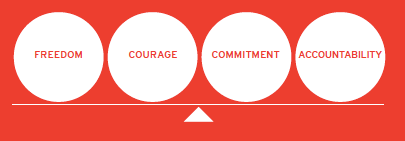Daniel Pink published an interesting piece over the weekend in The Telegraph about Netflix's innovative corporate policy of not having a vacation policy.
Meaning, employees don't have a set number of days they get off each year, but instead can take vacation whenever they want. From the article:
At Netflix, the vacation policy is audaciously simple and simply audacious. Salaried employees can take as much time off as they'd like, whenever they want to take it. Nobody – not employees themselves, not managers – tracks vacation days. In other words, Netflix's holiday policy is to have no policy at all.
This may sound like a recipe for disaster to you, but it hasn't turned out that way for Netflix. In fact, as the rest of article highlights, not having a lot of corporate policies may be a fantastic strategy for engaging 21st century workers.
In the article, Netflix VP of Corporate Communications Steve Swasey calls rules, policies, regulations, and stipulations "innovation killers."
After spending 10 years in Red Hat, a company run the open source way, I couldn't agree more. In fact, Daniel Pink's conclusion halfway through the article that "freedom and responsibility, long considered fundamentally incompatible, actually go together quite well" was exactly our experience.
Early in my time at Red Hat, I participated in a project to uncover the corporate values, a process I outlined in a blog post last year.
The end result was a set of values anchored on one end by freedom and on the other end by accountability. We always depicted the four Red Hat values balanced on a fulcrum, like in the image below:

At Red Hat, employees were given a lot of freedom, much more than in any other company I'd ever worked for. Yet Red Hat also had a strong culture of accountability. What we found over the years (these values were first articulated back in 2002) would probably be counterintuitive to many people:
The more freedom the company gave, the more accountability it received in return.
We watched this play out over and over in different parts of the company. More freedom in a department = more personal accountability from employees in that department. Conversely, the less freedom, the less accountability.
Keeping this balance between freedom and accountability (and preserving the freedom side as the company grew) became a key part of the Red Hat culture, and, I would argue, the most crucial piece of our employee engagement strategy.
So Netflix, I salute you. Well played, indeed.
Red Hat never went as far as getting rid of its vacation policy, but at my current company, New Kind, we've never had a vacation policy, and after reading this article and taking a quick partner vote today, we probably never will.
Maybe New Kind will even go a step further and enact a "no policy" policy of our own.
Do you have any stories where removing policies and increasing employee freedom actually increased accountability? If so, I'd love to hear them.






25 Comments